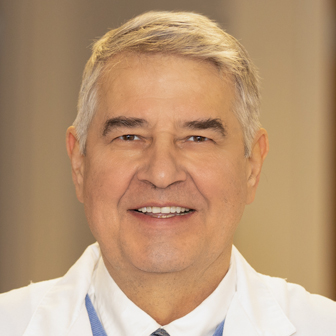Acid Reflux Medication Not Meant for Long-Term Management
Underlying problem must be addressed to reduce risk for further complications
 DAYTON, Ohio (February 15, 2019) – Gastroesophageal reflux disease, or GERD, affects millions of Americans, many of whom find relief in over-the-counter medications.
DAYTON, Ohio (February 15, 2019) – Gastroesophageal reflux disease, or GERD, affects millions of Americans, many of whom find relief in over-the-counter medications.
Everyone experiences acid reflux, but in most cases it goes unnoticed because the body naturally takes care of it before it becomes problematic. The esophagus helps to redirect the reflux back down into the stomach while the alkaline properties of the body’s saliva help neutralize any acid within it, said Laszlo Toth, MD, a general surgeon with Midwest Surgeons.
“Despite the misconception, GERD is not a disease of the body having too much acid,” he said. “Acid in the stomach is a very normal part of our anatomy.”
Instead, GERD happens when the acidity of the stomach contents cause painful symptoms or tissue damage in a person’s esophagus. The disorder may also create lesser known symptoms such as difficulty swallowing, a chronic sore throat, bad breath or erosion of teeth enamel, according to the International Foundation of Gastrointestinal Disorders (IFGD).
There are numerous medications used to manage acid reflux symptoms including antacids, histamine 2 blockers and proton-pump inhibitors. However, medications used to treat acid reflux, or GERD, simply mute the burning caused by the acid. They don’t always solve the underlying problem, said Dr. Toth, who practices with Premier Physician Network.
Over-the-counter medication should never be treated as a long-term fix for GERD, but rather a short-term aid in healing damaged tissue, Dr. Toth said. If symptoms do not improve during an eight-week use of the medication, then a patient should seek medical help. Underlying causes – such as a hiatal hernia – can be treated through minimally invasive surgical procedures.
Meanwhile, Dr. Toth said the best way to treat GERD and reduce its painful symptoms is to make simple lifestyle changes:
Watch what you eat – The type of food you eat can have a big impact on GERD. Replace three large meals a day with several smaller meals. Avoid foods such as chocolate, alcohol, caffeine, spices and peppermint, which are all known to aggravate GERD.
Change when you eat – Be careful not to eat within the three hours prior to bedtime. Eat no later than 7 p.m., for instance, if you plan to go to bed at 10 p.m. Also, try not to stay too sedentary after a meal by laying down to watch a show. Instead, stay upright to allow food to properly digest.
Lose the extra pounds – Evaluate your weight or body mass index (BMI) and consider losing a few extra pounds if needed. Being overweight can easily agitate GERD symptoms.
Review your wardrobe – Try to avoid tight clothing whenever possible. Snug pants or even shirts can place a constraint on the digestive tract.
Reconfigure your bed – Elevate the side of the bed where your head lies or use an extra pillow to create a wedge underneath your head. This will help reduce the risk of fluid moving up into the esophagus as you sleep.
Contact Us
Discover more about Premier Health and join us in building healthier communities in Southwest Ohio. Learn more about working at Premier Health, becoming a volunteer, and making a gift to support our mission.

